Employment
Employment refers to the condition in which a person performs work in exchange for payment. It is a crucial aspect of society, as it provides individuals with financial stability and contributes to the overall economy.
Types of Employment
There are various types of employment, including:
- Full-time Employment: Working a standard number of hours per week, typically 35-40 hours, and receiving benefits such as health insurance and paid time off.
- Part-time Employment: Working fewer hours than a full-time employee, often without the same benefits.
- Temporary Employment: Working for a fixed period of time, often to cover for another employee's absence or to complete a specific project.
- Self-Employment: Owning and operating one's own business or freelance work.
Importance of Employment
Employment plays a vital role in society for several reasons:
- It provides individuals with income to support themselves and their families.
- Employment contributes to economic growth and stability by creating goods and providing services.
- It offers opportunities for personal and professional development through skill-building and experience.
- Employment fosters a sense of purpose and fulfillment for individuals as they contribute to society.
Factors Affecting Employment
Several factors influence employment, including:
- Economic Conditions: Economic downturns can lead to job losses, while periods of growth can create employment opportunities.
- Technological Advancements: Automation and technological innovation can impact the types of jobs available and the skills required.
- Education and Training: Access to education and training programs can affect an individual's ability to secure employment.
- Government Policies: Laws and regulations related to labor, trade, and taxation can influence employment trends.
Study Guide
Here are some key points to remember about employment:
- What is employment?
- What are the different types of employment?
- Why is employment important in society?
- What factors can impact employment?
Understanding the concept of employment and its significance in society is essential for comprehending the dynamics of the workforce and the economy.
.◂Social Studies Worksheets and Study Guides Third Grade. Time Lines
Study Guide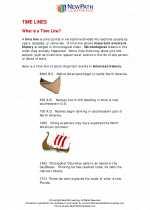 Time Lines
Time Lines  Worksheet/Answer key
Worksheet/Answer key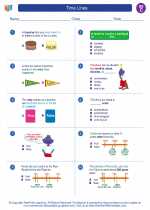 Time Lines
Time Lines  Worksheet/Answer key
Worksheet/Answer key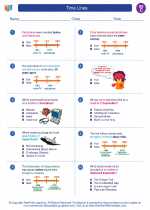 Time Lines
Time Lines  Worksheet/Answer key
Worksheet/Answer key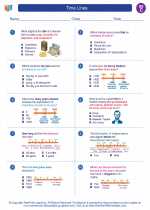 Time Lines
Time Lines  Worksheet/Answer key
Worksheet/Answer key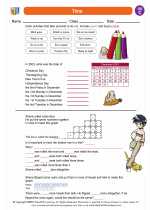 Time
Time 

 Worksheet/Answer key
Worksheet/Answer key
 Worksheet/Answer key
Worksheet/Answer key
 Worksheet/Answer key
Worksheet/Answer key
 Worksheet/Answer key
Worksheet/Answer key

The resources above cover the following skills:
National Curriculum Standards for Social Studies (NCSS)
TIME, CONTINUITY, AND CHANGE
SOCIAL STUDIES PROGRAMS SHOULD INCLUDE EXPERIENCES THAT PROVIDE FOR THE STUDY OF THE PAST AND ITS LEGACY.
KNOWLEDGE - Learners will understand:
The study of the past is the story of communities, nations, and the world.
Key concepts such as: past, present, future, similarity, difference, and change.
Key people, events, and places associated with the history of the community, nation, and world.
That people view and interpret historical events differently because of the times in which they live, the experiences they have, and the point of view they hold.
That historical events occurred in times that differed from our own, but often have lasting consequences for the present and future.
PROCESSES - Learners will be able to:
Ask and find answers to questions related to the past in school, community, state and regional contexts.
INDIVIDUAL DEVELOPMENT AND IDENTITY
SOCIAL STUDIES PROGRAMS SHOULD INCLUDE EXPERIENCES THAT PROVIDE FOR THE STUDY OF INDIVIDUAL DEVELOPMENT AND IDENTITY.
PRODUCTS - Learners demonstrate understanding by:
Studying important people in the community and nation, at the present time or in the past, to list qualities that make them special.
SCIENCE, TECHNOLOGY, AND SOCIETY
SOCIAL STUDIES PROGRAMS SHOULD INCLUDE EXPERIENCES THAT PROVIDE FOR THE STUDY OF RELATIONSHIPS AMONG SCIENCE, TECHNOLOGY, AND SOCIETY.
KNOWLEDGE - Learners will understand:
How society often turns to science and technology to solve problems.
That science often leads to new technology in areas such as communication and transportation, and results in change over time.
That science and technology can have both positive and negative impacts on individuals, society, and the globe.
PROCESSES - Learners will be able to:
Identify examples of the use of science and technology in society as well as consequences of their use.
Research a scientific topic or type of technology developed in a particular time or place, and determine its impact on people's lives.
Identify the points of view expressed in information sources regarding science and technology.
National Center for History in Schools (NCHS)
Historical Thinking Standards
Chronological Thinking
Identify the temporal structure of a historical narrative or story.
Interpret data presented in time lines.
Explain change and continuity over time.
Historical Comprehension
Identify the central question(s) the historical narrative addresses.
Historical Analysis and Interpretation
Formulate questions to focus their inquiry or analysis.
Compare different stories about a historical figure, era, or event.
Challenge arguments of historical inevitability.
Historical Research Capabilities
Formulate historical questions.
Historical Issues-Analysis and Decision-Making
Identify problems and dilemmas in the past.
Topic 3: The History of the United States: Democratic Principles and Values and the People from Many Cultures Who Contributed to Its Cultural, Economic, and Political Heritage
How democratic values came to be, and how they have been exemplified by people, events, and symbols.
The student understands events that celebrate and exemplify fundamental values and principles of American democracy.